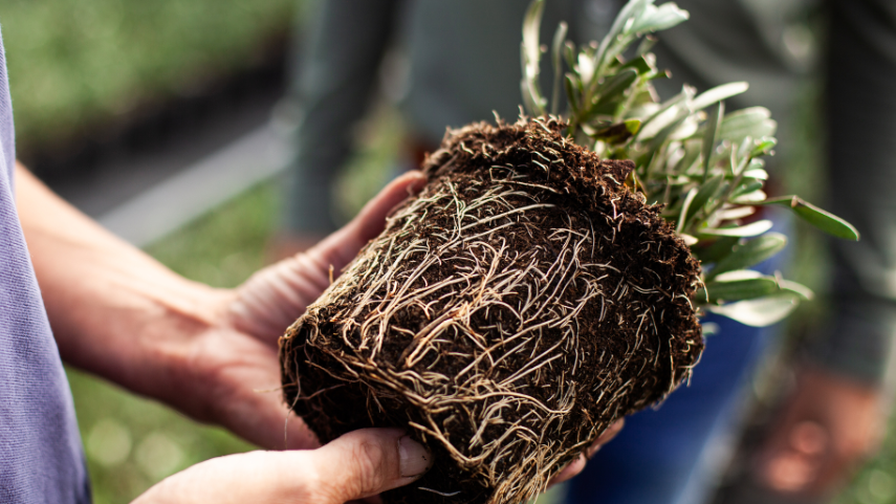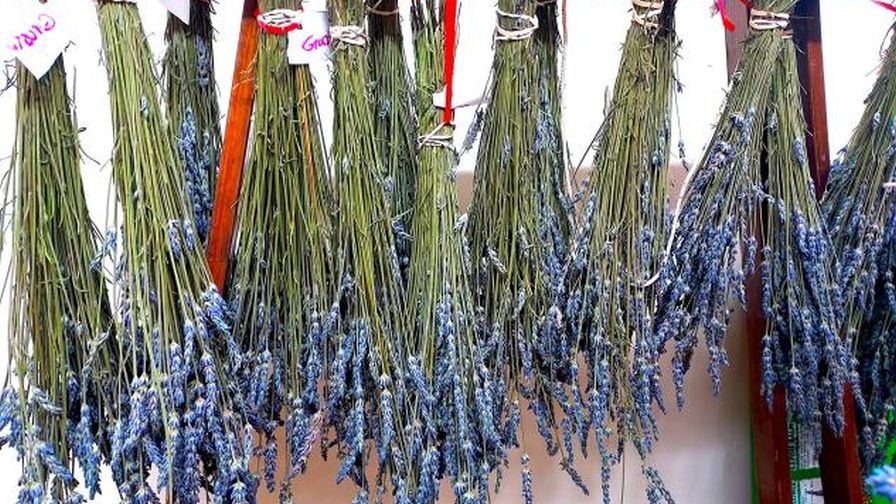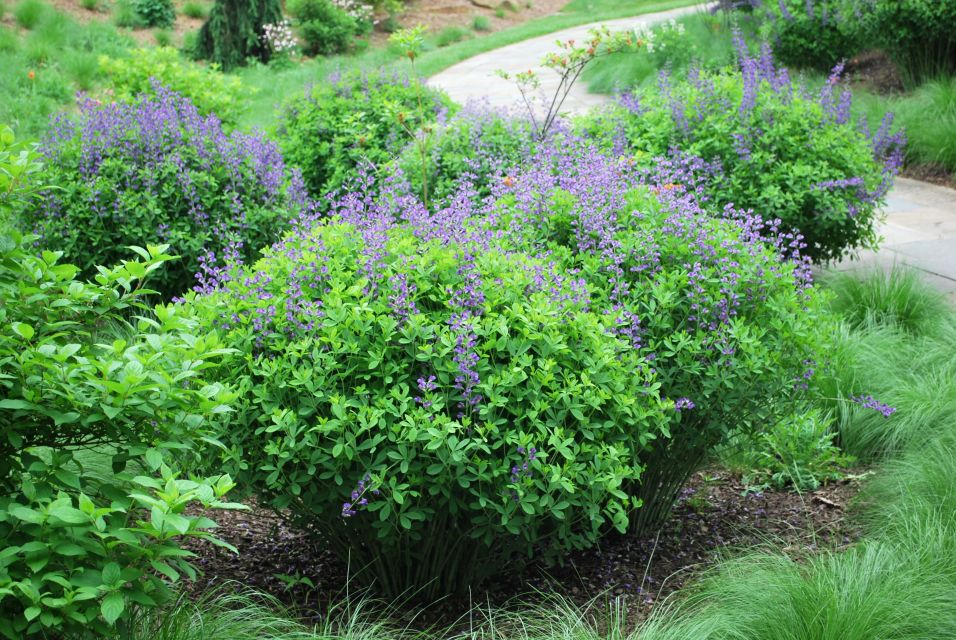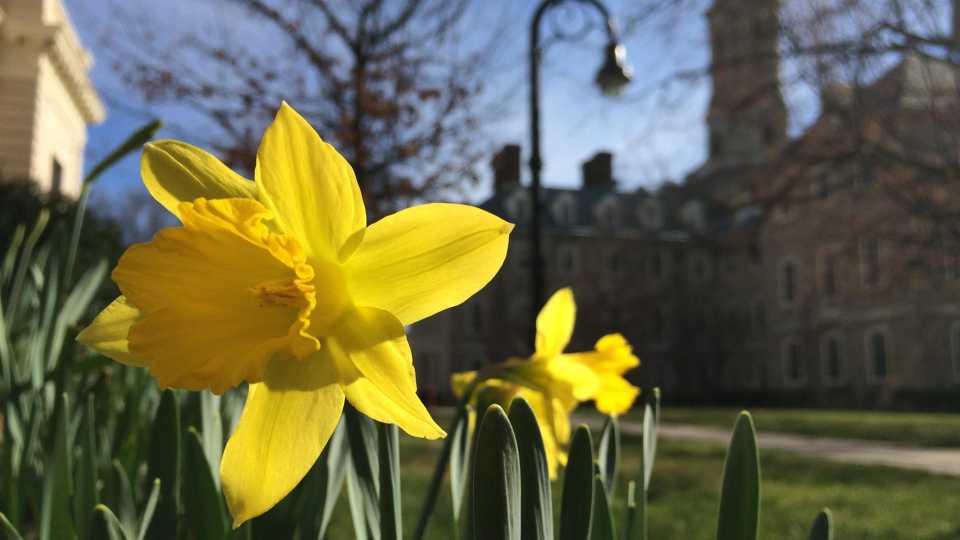Head Grower of the Year Aron Hoff Never Stops Learning
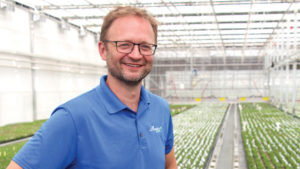 Aron Hoff, the Head Grower at Meyers Fruit Farms and Greenhouses in Niagara-on-the-Lake, Ontario, Canada, didn’t come to the farm with a formal education in horticulture. Yes, his mom is a member of the Meyers family, and Aron spent many of his summers working in peach orchards on the farm, which was founded in 1955 as a fruit and vegetable farm. But like many who grew up in the business, Hoff sought a different path, so he went to college to become a teacher and studied English and physical education at a liberal arts school.
Aron Hoff, the Head Grower at Meyers Fruit Farms and Greenhouses in Niagara-on-the-Lake, Ontario, Canada, didn’t come to the farm with a formal education in horticulture. Yes, his mom is a member of the Meyers family, and Aron spent many of his summers working in peach orchards on the farm, which was founded in 1955 as a fruit and vegetable farm. But like many who grew up in the business, Hoff sought a different path, so he went to college to become a teacher and studied English and physical education at a liberal arts school.
After college, Hoff taught for a couple of years in Ontario. However, the career that he thought he wanted was short-lived.
“I always wanted to come back to the farm,” Hoff says. “I couldn’t get it out of me.”
Hoff eventually came back to Meyers in 2004 (the first greenhouse at Meyers was built in 1966, and since then the company has shifted toward mostly greenhouse production, with about 1 million square feet of controlled environment crops today). At the time, the company was significantly expanding its rotation of weekly and monthly plant production, and needed strong leadership in making this happen efficiently. Hoff jumped right in, and whatever experience he may have lacked in horticulture education, he made up for by traveling to conferences and especially by talking to other growers, both locally and around the world.
In the time that has passed since then, Hoff has been driven by a desire to never stop learning.
“There is always more to learn and there’s always room for improvement,” Hoff says. “That’s what I like best about this job, and that’s what makes it interesting for me.”
In July, Hoff was named Head Grower of the Year by Greenhouse Grower magazine and award sponsor BASF during Greenhouse Grower’s Evening of Excellence program at Cultivate’17. Hoff also took home an “Excellence in Leadership” award, and as he noted in accepting the award, his ability to lead his team of growers is really a culmination of years spent learning on his own.
Keep reading to learn how Hoff has managed to keep educating himself over the years, and how he continues to do so today.
On-The-Job Education Was Critical
The timing of Hoff’s return to Meyers was impeccable, as the transition into weekly crop production and rotation meant he had to adapt to his new role quickly.
“I took every course and workshop available to me,” Hoff says. “The University of Guelph is nearby. It would do two or three nightly courses each year. I took every opportunity to educate myself, whether it was conferences, courses, or touring other greenhouses.”
One thing that helped, says Hoff, is that he simply enjoys learning.
“I’ve had to learn a lot on the job, perhaps more than the average grower,” Hoff says. “In our area, there’s a lot of family businesses and growers grow up in it and take over the business. In our case, it was sort of that way, but the business was also getting much bigger. There’s always new information available, but it’s up to you to take advantage of it.”
Advanced Planning Helps to Grow a Better Crop
The constant shifts between weekly and seasonal crop production often make for a seemingly never-ending growing season at Meyers.
“That’s the fun part for me,” Hoff says. “I like being out in the greenhouse, always being on the move and trying to improve each crop.”
It can be challenging to keep up with this flurry of activity, and you have to manage it efficiently.
“The day-to-day challenge is also what I like the best,” Hoff says. “You need to keep everyone in sync so you don’t get swamped.”
Because Hoff is turning production space all the time, he says it’s important to have a plan and know how close you are to maximizing space.
“I try to start by developing a vision and following what our system allows,” Hoff says. “I talk things through with our team of section growers, then adjust our zones to make these ideas work and get as many turns as possible.
The challenge for us is that we grow so many different crops that have specific needs. That’s why having discussions in advance is important, so you can identify problems before they happen.”
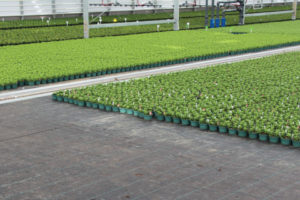
The installation of a flood floor irrigation system is just one example of new technology being implemented at Meyers Fruit Farms and Greenhouses.
New Technology and How to Implement it
To help keep up with constant changes in crop production, Hoff knows it’s just as important to invest in the right technology to make this process as efficient as possible.
“The decision on how to incorporate new technology starts with where we as a team feel the most pressure,” Hoff says. “It might be labor and labor management, production challenges based on variety, or pest management issues.”
When it comes to pest management, Hoff notes that Canadian growers don’t have access to the same chemicals that growers may have in the states.
“That pushes Canadian growers to approach pest management differently. It forces us to be much more thoughtful about what we’re doing and when and how we’re doing it,” Hoff says. “For a grower to be able to manage a biocontrol program, we need to know how it will help, and will it pay for itself.”
One thing Canadian growers do have in common with their peers to the south is labor concerns, and in particular the rise in the minimum wage.
“We’ve tried to get ahead of that and focus on what will make things easier for our team,” Hoff says.
For example, when it comes to soil delivery, Hoff knew he wanted the ability to give different mixes to different crops, as one crop may need a higher pH or porosity than another. With the new HydraFiber soil delivery system in place from Niagara Conveyor Systems and Martin Stolze, Hoff can easily select which soil type he needs at each planting line.
“It’s allowed us to keep diversity in production and cater to individual crops without making it harder on our production line,” Hoff says.
Whether it’s other technological investments such as diffused glass or an Erfgoed flood floor irrigation system, Hoff says he’s happy with the gambles his team has made.
“It’s affecting our crop, and changing things for the better,” he says.
Learning from Other Growers
Most of Hoff’s learning today comes from traveling.
“I go to Europe and visit greenhouses there,” Hoff says. “Visiting other greenhouses is where you learn the most. This past January I visited mum and kalanchoe greenhouses, and the previous year I focused on looking for solutions to help product move through the greenhouses.”
Locally, because there is a collection of growers in the area of all sizes, Hoff says they all try to get together regularly to discuss common issues.
“No matter if you’re small or big, we all have the same challenges,” says Hoff, who notes that each time the group meets, it’s usually with a specific focus in mind.
“The area we are in gives opportunity for discussion and focus,” Hoff says. “Some of us are competitors, but I also know that I can call many of these people and be at their greenhouse quickly. Usually, someone local is growing similar crops to us at any particular time of year. It’s a blessing to grow here.”
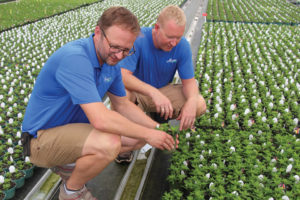
Aron Hoff meets with his growrers (including Mike Busch, right) on a regular basis to discuss crop issues.
Aron Hoff’s Seven Tips on Being an Effective Leader
In addition to being named Head Grower of the Year at Greenhouse Grower’s Evening of Excellence program at Cultivate’17, Aron Hoff also received the “Excellence in Leadership” award. Here are seven traits Hoff says are critical to follow for anyone who wants to become an effective leader.
Listen. Being a good leader requires you to listen to your team of growers and to work with them closely on a day-to-day basis.
Be accessible. Being available to the team allows for important discussions to happen. Through that, you can take steps forward and better analyze what you need to do in response to what is going on in your crops.
Lead by example. “ I want growers to see me on the job and learn something from that example,” Hoff says. “My grandfather was a grower, and his example was clear that none of us are above any other, and leaders are valued and recognized most often for what they do, not for who they are.”
Always strive to hone your leadership skills. Hoff tries to do this by educating himself through traveling to other companies, attending conferences, and talking shop with consultants and other growers in the industry.
Be humble. “Being a leader of course requires experience and knowledge, but the true key is acknowledging that I don’t know it all,” Hoff says. “There is always more to learn, and showing our team that I am intent on learning and using this knowledge to guide our company forward empowers me as a leader.”
Empower your team. ”I want to enable people to be confident and allow them to be part of the decision-making process,” Hoff says. “It’s not always possible, but for the most part I want to be able to help our team members make decisions on their own.”
Encourage your team to visit other growers. “That’s where you learn a lot, as well as through attending conferences and online courses,” Hoff says. “Learning from other greenhouses allows them to be part of the process and helps us deal with challenges.”
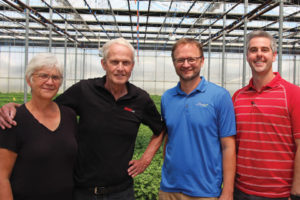
Meyers Fruit Farms’ management team includes (l-r) Elly Hoff, Fred Meyers, Aron Hoff, and Jim Meyers.
Words of Encouragement and Support
Fred Meyers, the owner of Meyers Fruit Farms and Greenhouses, speaks highly of Aron Hoff. Here are just a few of the comments made by Meyers in nominating Hoff for the Head Grower of the Year award.
• “Aron is constantly researching trade and technology to assess ways in which our product can be grown to incorporate and improve older greenhouse structures (e.g., cart tracking, conveying systems) while factoring in newer builds and implementing state-of-the-art expansion.”
• “Aron leads by example. No one works harder or smarter than Aron. His team of seven growers meets weekly to discuss crop issues and other concerns. He encourages them to produce ideas to facilitate positive change regarding their area of supervision and crop quality.”
• “Aron is open, forthright, whip smart, and humble, with an ability to make each grower feel like an important and empowered member of the team. He makes sure that all growers have the opportunity to ask for what they need to improve their job performance and ensures that this request is put into play. As the owner, when I walk by these meetings, there is a sense of joviality and mutual engagement, and the passion is quite visible.”
• “Aron is the integral cog in our sales-driven family business, working seamlessly between sales and production. He commands space management with finesse as he dictates propagation zone and timing with transition to finish areas. He recommends varieties to grow to our management team, based on in-house trials and varied trials pertaining to other growers. He interfaces constantly with our sales team, understanding their sales goals and projections, never planting short and always planting long. The quality and quantity of the plants always seems to find a home, and this small ‘plant long’ percentage gamble always pays off.”





